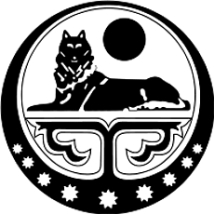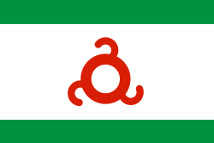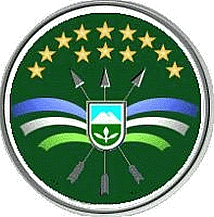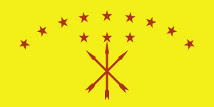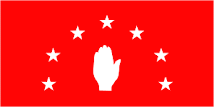 Probably, most people believe that the Greeks were the authors of the myth of Prometheus. However, many Caucasus nations have similar myths. According to the North Caucasus myths, Prometheus was chained either to Elbrus or to Kazbek - two of the highest mountains in Caucasus. According to the Greek myth, Prometheus was chained to a mountain in the Caucasus. This is quite remarkable. Greeks had their colonies around the Black Sea including the area of the Caucasus Black Sea coast. By now, scientists came to conclusion that Greeks borrowed this myth from Caucasus nations.
Probably, most people believe that the Greeks were the authors of the myth of Prometheus. However, many Caucasus nations have similar myths. According to the North Caucasus myths, Prometheus was chained either to Elbrus or to Kazbek - two of the highest mountains in Caucasus. According to the Greek myth, Prometheus was chained to a mountain in the Caucasus. This is quite remarkable. Greeks had their colonies around the Black Sea including the area of the Caucasus Black Sea coast. By now, scientists came to conclusion that Greeks borrowed this myth from Caucasus nations.Many Caucasus nations have myths similar to the myth of Prometheus. Abhazs have a myth of Sasrykva. According to this myth, when Sasrykva's brothers were frozen, he shot into a star and it fell down. Then, he found a camp-fire and brought smoldering log to his brothers. However, before he did that, he had to kill a giant. Adygs have a myth about Sasruko. This myth is very similar to Abhazs' myth about Sasrykva. Karachais and Balkarians have a myth about Sosuruk which is also very similar to the myths about Sasrykva and Sasruko. However, neither of these myths says about sufferings for bringing fire to people.
Abhazs have a myth of Abrskil who rebelled against god and was chained, but he did not bring fire to people. Adygs have myths about Nasren-zhache and Bataraz. They both rebelled against god who stole fire from people. Nasren-zhache tried to bring it back, but was chained. Bataraz released him and brought fire back to people.
Georgian myth about Amirani is quite similar to Abhaz myth of Abrskil. In some versions of this myth, Amirani brought fire to people. However, unlike, the Greek myth, he was chained in a cave, not on the mountain.
Among the Caucasus versions of this myth, the version which is the most similar to the Greek version is the Chechen version. Even Chechen name for Prometheus is similar to the Greek one. In Greek, "Prometheus" means "prophet." The Chechen name for Prometheus is Pqharmat. This word is from Chechen "pqhar" which means "blacksmith" or "master". According to both Chechen and Greek versions, Prometheus was a blacksmith. There is a version that Pqharmat means "master of the land" or "master of the language." "Qh" is a sound missing in Greek and other European languages. Greeks usually dropped the sounds that they could not pronounce. "-eus" is a Greek ending. Greek "th" and Chechen "t" are pronounced in the same way. This means that the consonants in Chechen and Greek words for Prometheus are the same. In most languages, consonants are more stable than vowels. For example, English vowels were changed much more than consonants.
In the Greek version Prometheus eventually was released after he revealed the secret to Zeus as he demanded. In the Chechen version he has never agreed on Sela's conditions, was never released and is still suffering. In the Greek version, Prometheus complained and cursed Zeus. In the Chechen version, he kept silent and never complained. In addition, in the Chechen version, Pqharmat willingly came to Sela (Chechen god of fire, thunder, and lightning - equivalent of Zeus) in order to suffer. Chechens consider him as one of their ancestors.
What is the main idea of this myth? Some consider Prometheus as a symbol of scientific search. I do not think this is the main idea. When I was a child, I watched a performance on the Greek version of this myth. Zeus asked Prometheus, "Why did you do that?" His reply was, "I wanted to help people." The stress was made on this point. I believe this is correct. I think the main idea of this myth is altruism and self-sacrifice for other people.
When I was reading the Greek version, I was puzzled why Prometheus eventually revealed the secret to Zeus as Zeus demanded. I was not satisfied that he fulfilled the will of Zeus. In the Chechen version, Pqharmat did not fulfill Sela's will. He did not complain and did not curse anybody. He was willing to suffer. I definitely prefer the Chechen version of this myth and believe that this is the original version.
Pqharmat portrays some character traits which are highly appreciated in Chechen culture - altruism, independence, dignity, courage, and patience.
